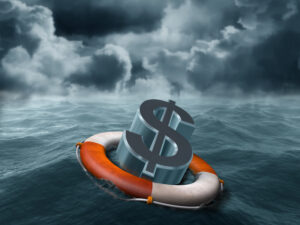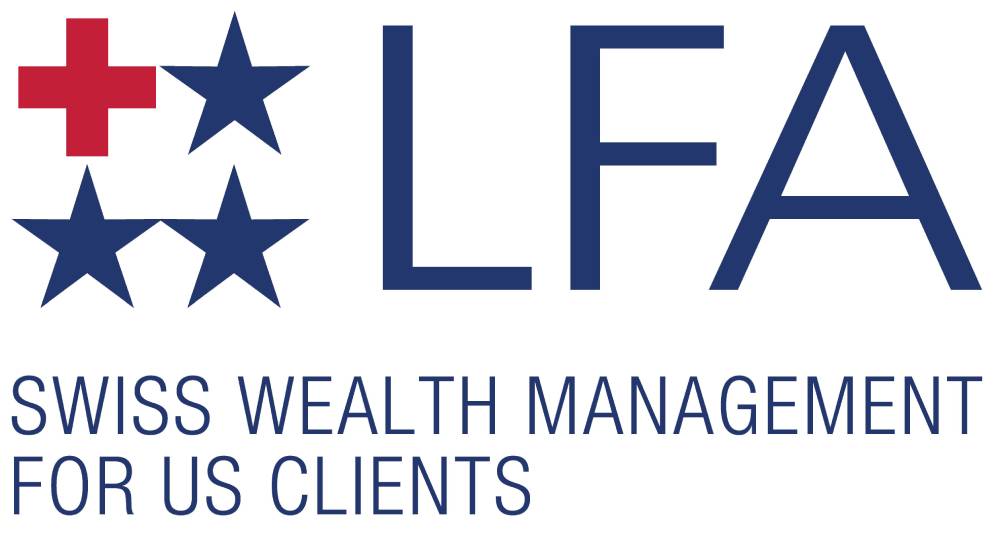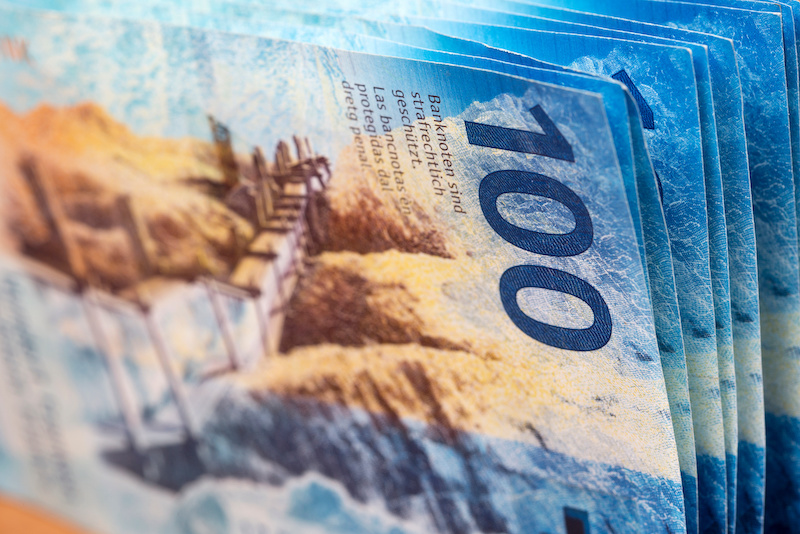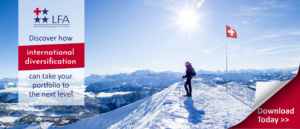The Swiss franc (CHF) has a long history of being a safe investment in the financial world and has long been a staple of Swiss asset management. The 2008 financial crisis saw considerable investors, nervous about the market, flocking to Swiss wealth management firms to invest their money using Switzerland’s national currency.
The Swiss franc has long been lauded as a stable currency that investors have sought out to protect their purchasing power, given the overall stability of the Swiss government, the Swiss central bank, and its financial institutions.
Why diversify my portfolio with Swiss-based investment strategies?
- What strategies should I use?
- Can Swiss francs be a hedge against high inflation and a U.S recession?
- How can wealth management in Switzerland help my investments?
- Why should I diversify my portfolio into the global markets?
- How do Swiss francs compare to other safe havens such as gold?
Many Americans drive foreign cars, use foreign appliances, and buy clothes and other retail items that are manufactured in other countries. It would be very hard not to buy, use, or interact with something made or manufactured in another country on a daily basis. Just as your buying habits are not limited to domestic products, why should you limit your investment strategy to U.S. based companies?
With the elections fresh in everyone’s mind, see how they may affect your portfolio and what LFA can do to help
A Strong Alternative to the U.S. Dollar
The Swiss franc and Switzerland itself are universally considered a safe haven by the entire world. During the European Debt Crisis of 2009, amidst high-interest rates and rising prices, multiple European nations rushed to Swiss banks to store their wealth. Just before this, investors in the United States exchanged domestic assets for Swiss alternatives that reduced their exposure to the U.S. dollar.
Switzerland has stayed neutral for centuries, even during major worldwide conflicts, and this attitude is reflected in its companies and institutions, including the Swiss National Bank (SNB). Switzerland’s banks are renowned for their confidentiality and the more conservative manner in which they operate.
The strong financial history of the CHF and other assets is backed by a guarantee from the Swiss government that is responsible for one of the safest currencies in the world.
How does it compare to other safe havens like gold?
Inflation is the prominent reason investors add gold to their portfolio, as it is highly regarded as a good hedge against inflation.
Swiss francs and gold have a positive relationship. The Swiss National Bank is one of the largest owners of gold in the world, as legislation passed a requirement that a certain percentage of Swiss francs be backed by gold. A big reason Swiss francs are regarded as an attractive investment is the safe haven status of the Swiss banking system. For example, at one point Switzerland maintained its equivalent of the Consumer Price Index (CPI) at 0.5% for 25 years. Price levels in this very stable country remained unchanged for more than 10 years.
The Swiss franc, guaranteed by the Swiss government, benefits from gold prices as it is a custodian of substantial gold reserves, and operates as a coveted safe haven renowned worldwide.
National Deficits
Switzerland’s income far exceeds its expenses, resulting in a history of no deficits and surpluses for many years. This results in a self-reliant economy and provides a stable foundation for its currency.
Although the Swiss economy performs quite well and implemented a “debt brake” in the early 2000s, it can run a deficit from time to time. The Swiss government is expected to run a deficit for 2022 of 5 billion francs citing exceptional costs from COVID-19 and supporting Ukrainian refugees.
The government has budgeted for a shortfall, and if it were not for these exceptional circumstances, they would have expected a budget surplus of 700 million francs.
While COVID and the ongoing Ukrainian conflict has affected most of Europe and the U.S., Switzerland has remained vigilant and stable, and likely would otherwise be enjoying the aforementioned surplus in 2022. According to Reuters, before Covid unexpectedly took the world by surprise, Switzerland was expected to have an impressive $615 million surplus for 2020. This was despite the 2019 tax and pension reforms that lowered revenue while raising spending.
While the United States accepts trillion-dollar deficits while pushing the national debt to around 96% of its GDP, Switzerland has historically been a fiscally responsible country. Though smaller than West Virginia with a population smaller than New Jersey’s (its GDP is less than 4% of the United States), it has consistently posted budget surpluses and kept its deficits small, in the rare events that occur. This is another attractive reason why investors look at the Swiss franc as a popular alternative to the U.S. dollar.
A Protection Against Inflation
In addition to providing a stable safe haven for investors around the world, the Swiss franc has long been considered a good hedge against rising inflation. Because of the higher standard of living in Switzerland (their prices and salaries are higher compared to their neighbors), the country tends to see much lower inflation compared to the rest of the world, and the value is reflected in the stability of the Swiss franc.
Another key factor in Switzerland’s low rate of inflation is its reliance on hydropower for nearly 60% of its energy, which protects it from some of the volatility in both the oil and gas markets.
The strong Swiss currency pairs well with an economy that efficiently avoids high inflation, making it easy to see why so many foreign investors seek to add Swiss francs to their portfolios.
A Potential Protection Against a U.S. Recession
U.S. consumer inflation rose 7.7% year-on-year this past month, which has been its lowest rate since January. Compared to several other currencies, the dollar was down roughly 3.8% over two sessions, which would put it on pace for its largest two-day percentage loss since March 2009.

The dollar was about 2.4% lower compared to the Swiss franc (at 0.94025 francs) after the SNB declared it was prepared to combat inflation by any means necessary, potentially bringing inflation down to its normal 0-2% range.
Unsure about your financial plan for 2023? If you need guidance and answers on how you can hedge your portfolio against rising inflation, contact our team at LFA. We offer a wide variety of financial services
Diversify Your Portfolio with Swiss Francs
It would strongly benefit American investors to have part of their portfolios in Swiss francs because Swiss francs are a safe haven currency. Swiss stocks and real estate can also be lucrative investments as well. Swiss insurance companies also pay dividends and large Swiss companies like Nestle have historically been relatively stable investments.
The long-term trend for the exchange rate of the U.S. dollar compared to the Swiss franc is for the franc to appreciate against the dollar, thereby making the Swiss franc a more prudent investment.
Global investing can be complex, especially if you are just starting out. Our professionals at LFA are experts when it comes to investing in the global securities markets.
CONCLUSION
Global investing is a way to grow your portfolio, and Swiss francs are an effective option for producing more stable returns. . Whether you are seeking planning or investment services, we can help you plan your future and build an effective global investment strategy that uses Swiss francs for its currency.


